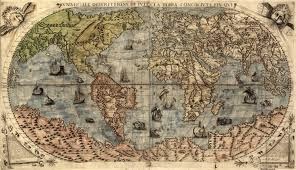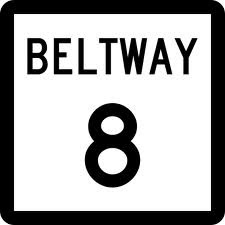
Presented by Andy Paultanis on August 1, 2013
Advanced Communication Series: Humorously Speaking
Project 4: Keep Them Laughing
Time: Five to Seven Minutes
Houston…we have a problem.
It’s the auto traffic. Houston is in the top five of the worst cities in
the United States to drive in.
I am from Michigan so Houston traffic is a cultural
shock. I really don’t understand traffic
road design in Houston.
For example, I going to go out on a limb and predict the population around Katy will greatly expand within the next five
years to ten years. Why is new Highway
99 only two lanes? Why not three? Why not four?
I believe the new bridge at I-10 and Highway 99, will be
inadequate to handle the huge future traffic flow. I tell my kids, this intersection will become
known as the Malfunction Junction.
Houston suffers from arteriosclerosis roaditis, the clogging
of roads. Where I lived we had higher
population density than Katy but half the traffic congestion. There is no fluid traffic flow or few road
alternatives in Houston.
Did you ever heard of bridges to nowhere, how about roads to
nowhere. There are few roads in Houston
that go really anywhere for any distance.
Just look my home area. West
Little York dead ends, Keith Harlow dead ends, Clay Road dead ends, Morton Road
dead ends, Barker Cypress dead ends, Greenhouse dead ends, West Green dead
ends, Fry Road dead ends. Kingsland dead ends.
It seems the majority of roads go
for a short distance only to dead end into a Venus flytrap of humanity, the
Houston subdivision.
People have been known to drive into a Houston subdivison, never to to be seen again.
There’s no going around the block in Houston. Either you know where you’re going or you
don’t. If a road doesn’t dead end it
changes direction. On some Houston
roads, you can travel for eighty three miles and end exactly where you started.
Consider the Beltway 8 Loop. It seems
we drive in circles in Houston.
There is only one viable road from Katy to downtown,
I-10.
No wonder it’s clogged and
congested all the time.
One of the biggest issues with Houston traffic are the Yes,
No, Maybe, I don’t know, left turn lanes.
In Michigan, when a person is in the left turn lane, there is a 99.999%
chance they will turn left. In Houston,
there is a 95% chance they will turn left. I’ve constantly see drivers veer right at the
last second crossing two or three lanes to do a right turn. A few days ago someone cut me off, without
signaling or looking, veering right out of a left turn lane.
In Livonia, most left
turn lanes also serve as fire lanes. An
emergency vehicle in Livonia could drive a hundred miles an hour down a fire
lane because we don’t plant trees in middle of the left turn zones. The
boulevards are beautiful but they result in very short left turn lanes which
clog rush hour traffic. The boulevards are a public safety hazard.
Not too long ago, on West Little York, I watched as an ambulance could not go with the flow of traffic so he climbed
the curb, drove down the middle boulevard, then stopped at the trees. Then he drove
off the boulevard into flow of on-coming traffic because it there was much less traffic than
the direction he intended to follow. It
was like watching a Hollywood action movie.
The irony of Houston is that there are great medical centers
here but don't have an emergency during rush hours. If the disease doesn’t kill you, the traffic will.
When I first moved to Houston three years ago, I was amazed
there were almost no adult traffic signals. An adult traffic signal is where
you have the option to turn left on a flashing red turn arrow. You make an
adult decision, if traffic is clear then you can make a safe turn. After seeing how people drive in Houston, I
understand why there are no adult traffic signals. I’ve been driving for over forty years and
I’ve never seen driving as in Houston anywhere in the United States
Another reason for traffic
congestions is that people in Houston are the slowest drivers in the United
States that I’ve seen.
I can’t believe how slow people drive
in Houston.
Maybe one reason why people drive so slow is that Houston is
home to a diverse population of many people who have immigrated, legally or
illegally, or come from other planets to the city. Sometimes I think that there are Klingons driving
in front me they are so slow. I’m no
different in a strange city, I drive slow and cautious. Maybe it’s the southern culture of taking
life slow and easy.
"What… [I receive a cell phone call]. I am in the middle of a speech, this better
be very important. This is so embarrassing. It’s one of my sons. You’re only to call me if it’s an
emergency. Got it. Six plain chicken sandwiches, no pickle, no
butter and two eight piece chicken nuggets, two large waffle fries, a large Coke
and Sprite."
"Oh, I’m in the middle
of a Toastmaster speech. They don’t care because they know I am
multi-tasking. I can talk on the phone
and give a speech at the same time just as I can drive and text at the same
time. It’s not like I am going to kill anybody in Toastmasters if I become too
distracted."
One of the first times I saw someone on a cell phone
multitasking was in the 1990s when a woman went multi-tasking through a red light then t-boned another
car. Had the other car had a passenger,
that passenger would have been killed instantly. It only takes a second to make
a fatal mistake.
Probably the biggest reason there is so much traffic
congestion is that too many people are using electronic devices who don't devote
their full attention to driving. People
who drive the speed limit or below the speed limit scare me. The vast majority are talking or texting who
just happen to be driving. They may be driving slow but they aren’t driving
safely.
Talking and texting to me is no different than as alcoholic
consumption. Some people handle it better than others but in the interest of
public safety we ban and discriminate against drinking and driving.
I am as guilty as the next person.
I believe if we banned electronic devices, traffic flow in
Houston would improve 25%.
This is no
joke, please drive safely and minimize your use of electronic devices. It takes
only a second of being distracted to destroy your life.


































